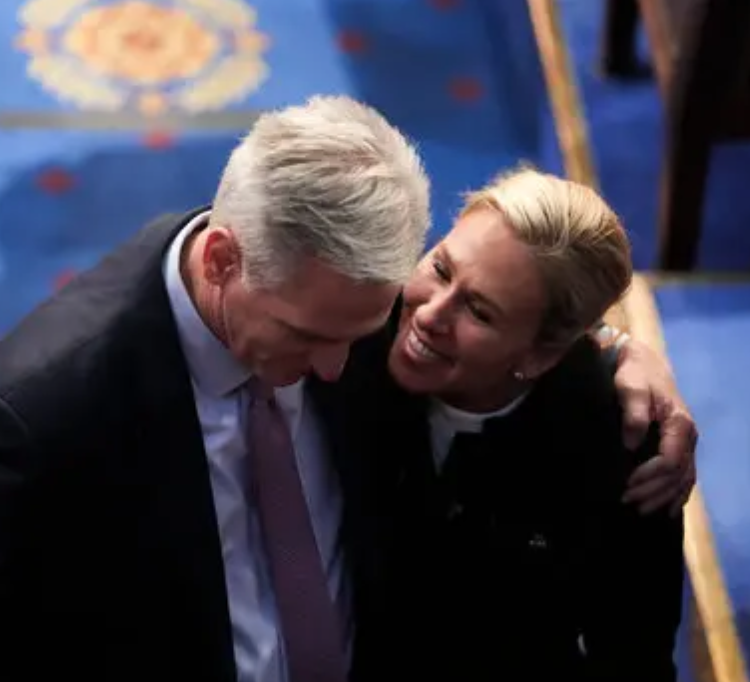

Every woman looking at this photo could think of something more comfortable and functional to wear while playing Olympic level volleyball.
Sexism at the Olympics (or anywhere) is nothing new. But it’s past time to address these issues, not just talk about them. This year’s sexism discussion has a lot to do with the outfits that the female athletes are forced to wear that seem to sexualize their bodies as opposed to making it easier for them to compete and be taken seriously. The male athletes at the Olympics get to wear what makes the most sense for their sport. Who polices these uniforms and athlete attire? Mostly men, of course.
“It’s 2021, but the policing of female athletes’ bodies is a practice that continues to thrive.
The Norwegian women’s beach handball team is in a battle with the sport’s governing bodies to wear less-revealing uniforms. After the team’s repeated complaints about the required bikini bottoms were reportedly ignored, they wore shorts during a recent game in protest and were fined 150 euros (around $175) per player.. . .
It has been a shock to many that women athletes are still having to fight such battles, but it doesn’t surprise me at all. Sexism is systemic all over the world, not just in the United States. It is as pervasive as racism; maybe even more so.
Women athletes often don’t have the same options
For retired soccer player Briana Scurry, the ordeal that the Norwegian team is facing is “enraging” and “absurd” — and not unfamiliar, she told NPR. Scurry, who has played in three World Cups and has two Olympic gold medals, recalled representing the U.S. in the Olympics in the 1990s and the women’s team having to wear “hand-me-down jerseys and shorts from the men’s team” because the sponsor made the uniforms with only the male team in mind.”
Meanwhile, female gymnists must wear bikini bottoms. Female volleyball players (on sand only) must wear bra tops and bikini bottoms. How does a bikini bottom help a female gymnist perform? It doesn’t. It’s for the benefit of the male viewers, primarily.
“The attention on the bikinis intensified in Tokyo after a viral social media post misidentified a team that protested a beach handball dress code as playing beach volleyball. Beach handball, which is not an Olympic sport, requires women to wear bikinis, and the European federation fined the Norwegians for wearing shorts as a protest at a competition 5,500 miles away in Bulgaria.
In Tokyo this week, the German gymnastics team wore full-legged unitards that went down to their ankles, eschewing the traditional bikini cut that ends high on the hip. The athletes said they were trying to combat the sexualization of young women and girls in their sport, which is trying to recover from a decades-long sexual abuse scandal.
Here’s the problem: women are inherently and inescapably viewed as sexual objects instead of athletes on par with men. This isn’t a problem just with athletes, but in all walks of life.
Women being judged on their perceived femininity rather than their athleticism is a symptom of a bigger problem. Sports are often a “microcosm of our society,” said Akilah Carter-Francique, the executive director for the Institute for the Study of Sport, Society and Social Change at San José State University.
“There are those societal expectations that fall in line with gender norms that are couched in patriarchy about how women should present themselves. … From hair to makeup to clothing, to how tight [or loose] the clothing is, to the colors,” Carter-Francique told NPR. “[All] so that they can be more in line with this notion of girlhood, of womanhood, of what is deemed femininity.”
Femininity no longer means what it used to, to most people in the civilized world. It does not mean makeup, dresses, sparkles and sequins, (do the men’s Olympic outfits have a lot of sparkly shit on them? Of course not) and long camera shots on the female butts in bikini bottoms. Women know that bikini bottoms are not really made for stretching, moving, running or anything else.
Femininity, in any case, should have nothing to do with being an Olympic athlete.
Come on Olympic board members – treat women athletes with respect and like adults. Don’t make them look like sexualized little girls for your own amusement. That’s just sick. Women athletes should wear what they decide to wear in the future and then just wear it, and to hell with being fined by some drooling old men who want to leer at them.
